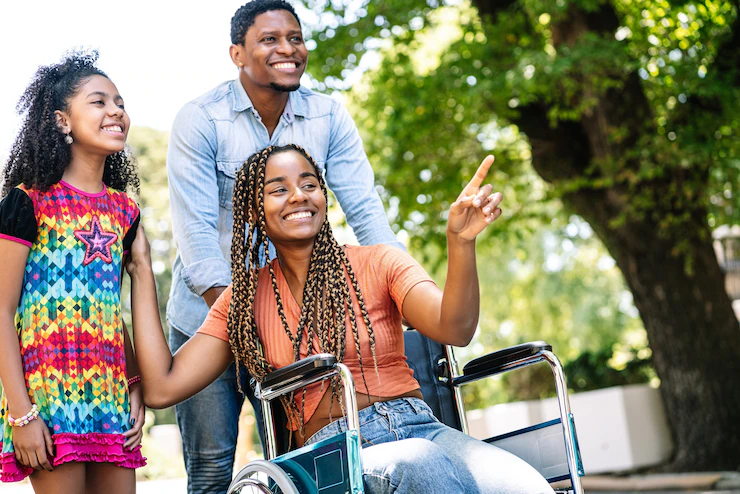The number of disabled people in UK is on the rise, and this is a problem that needs to be addressed. According to the World Health Organization (WHO), a disabled person is anyone who has “a problem in body function or structure, an activity limitation, has a difficulty in executing a task or action; with a participation restriction.” In other words, disabilities can come in many different forms and affect people in different ways. This is why it is so important for businesses and organizations to make sure they are accommodating for disabled individuals.
Disabled people in UK
The number of disabled people in UK is on the rise. According to the Office for National Statistics (ONS), the number of people with a disability in the UK increased from 11.9 million in 2013 to 12.2 million in 2016. This is an increase of 2.6%.
Types of disability in UK
There are many different types of disabilities that people can have. Some of the most common include:
Deaf/Hearing loss: This is a disability that affects a person’s ability to hear. It can be caused by many different things, including genetics, illness, or injury.
Dumb: A dumb person is someone who cannot speak. This can be due to a number of different factors, including congenital defects, illness, or injury.
Blind/Eye disability: This is a disability that affects a person’s ability to see. It can be caused by many different things, including genetics, illness, or injury.
Mental disability: This is a disability that affects a person’s mental state. It can be caused by many different things, including genetics, illness, or injury.
There are many other types of disabilities that people can have, but these are some of the most common. It’s important to remember that everyone’s experience with a disability is different.
How can we help disable people
There are many different ways that businesses and organizations can accommodate for disabled individuals. Some of the most common include:
- Making sure that buildings are accessible: This means making sure that there are no barriers preventing disabled people from getting into the building. This can include things like having ramps and wide doorways.
- Making sure that communication is accessible: This means making sure that disabled people can easily communicate with others. This can include things like providing sign language interpreters or providing materials in Braille. We can give them some BSL alphabets video tutorial .
- Making sure that products and services are accessible: This means making sure that disabled people can use the products and services that businesses offer. This can include things like having wheelchair accessible vehicles or offering products in Braille.
There are many other ways that businesses and organizations can accommodate for disabled individuals. It’s important to remember that everyone’s needs are different
Things that are in Equality Act 2010
The Equality Act 2010 is a piece of UK legislation that enshrines certain civil rights and protects people from discrimination on the grounds of age, disability, gender reassignment, marriage and civil partnership, race, religion or belief orientation.
The act prohibits employers from discriminating against employees on any of these grounds, as well as obliging them to make reasonable adjustments to ensure that disabled employees can work effectively. It also requires schools and other service providers to make reasonable accommodations for people with disabilities. Finally, the act bans hate speech and harassment on the grounds of any protected characteristic. these institutes and organization comes into the act :
- Public bodies, such as government departments and local councils.
- Private companies that provide services to the public, such as banks and utility companies.
- Every organizations that provide education, such as schools and universities.
- Institutes & organizations that provide healthcare, such as hospitals and GP surgeries.
- Organizations that provide housing, such as landlords and housing associations.
- Organizations that provide transport, such as bus and train companies.
Conclusion
Disabled people in the UK are entitled to the same rights and protections as everyone else. This includes the right to not be discriminated against, the right to equal access to education, the right to equal access to healthcare, and the right to equal access to housing. businesses and organizations have a duty to make sure that their premises, communication, and products and services are accessible to disabled people. Thanks for reading . We hope it will help you to understand disability needs






